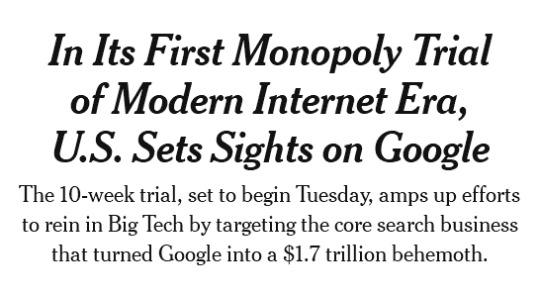#internet marketing for law firms
Explore tagged Tumblr posts
Text
https://advantageattorneymarketing.com/law-firm-content-marketing-plan-success/
Maximize the power of Lawyer Content Marketing. Drive results and unlock success with proven Content Marketing Strategies. For more information contact our firm and call us today at (866) 391-5001.
#Lawyer Seo Company#Cloud Computing For Small Law Firms#Seo In Digital Marketing#Seo Digital Marketing Agency#Local Marketing Firms#Law Firm Website Design#Internet Marketing For Law Firms#Digital Marketing Company#Digital Marketing Agency#Seo For Lawyers#Digital Marketing Company For Law Firms#Law Firm Marketing Agency
0 notes
Text
Mastering Law Firm Digital Marketing in Connecticut

In today's fast-paced world, the legal market in Connecticut is becoming more competitive by the day. To stay ahead, law firms need to adopt sophisticated law firm digital marketing strategies that go beyond traditional methods. Whether you are looking to increase client intake or establish your firm as a thought leader, implementing modern marketing techniques can significantly elevate your visibility and authority. The key is to integrate both law firm internet marketing and digital marketing strategies for lawyers to maximize your reach.
Why Digital Marketing is Essential for Law Firms in Connecticut
The legal industry is no stranger to change, and law firm digital marketing in Connecticut has become a non-negotiable component of running a successful practice. Clients no longer rely solely on word-of-mouth or local listings to find legal representation. Instead, they turn to search engines, social media, and online reviews to vet potential law firms. As a result, having a strong online presence is now essential to surviving and thriving in the highly competitive Connecticut legal landscape.
Law Firm Internet Marketing in Connecticut: Building the Foundation
At the heart of effective law firm internet marketing in Connecticut is a strategy that addresses both visibility and credibility. By leveraging search engine optimization (SEO), pay-per-click (PPC) advertising, and content marketing, law firms can ensure that they are easy to find online. These tactics not only boost visibility but also establish trust, which is critical when clients are choosing legal representation.
Key components of a successful internet marketing strategy include:
SEO Optimization: Targeting specific keywords such as "Law Firm Internet Marketing Connecticut" helps your site rank higher on search engine results pages (SERPs), making it easier for potential clients to discover your services.
Website Design: A user-friendly website that is optimized for mobile and desktop ensures a smooth experience for visitors, increasing the likelihood they will contact your firm.
Content Creation: By providing valuable information through blog posts, articles, and videos, your law firm can position itself as an authority in its practice area.
The Power of Attorney Digital Marketing in Connecticut
Attorney digital marketing in Connecticut involves more than just setting up a website or social media account. It encompasses a broad range of online strategies designed to attract and engage potential clients. Lawyers and law firms must be visible where their target audience is spending their time—whether that’s on Google, LinkedIn, or other platforms.
Here are some tactics to help elevate your digital marketing efforts:
PPC Campaigns: For immediate results, paid advertising on platforms like Google Ads can place your law firm at the top of search results. Target keywords like "Attorney Digital Marketing Connecticut" to ensure that your ads are seen by the right audience.
Email Marketing: Keep clients and prospects engaged with regular updates, legal news, and case studies. Email marketing helps build long-term relationships by keeping your firm top of mind.
Social Media Engagement: Platforms like LinkedIn allow lawyers to connect with other professionals and potential clients. Regular posting, sharing articles, and interacting with followers can enhance your firm's credibility.
Lawyer Internet Marketing in Connecticut: Enhancing Visibility
For lawyer internet marketing in Connecticut, visibility is key. Potential clients searching for legal services will often choose the firm that appears at the top of search results, which makes SEO critical. However, simply ranking high isn’t enough; your website and content need to offer value, ensuring that once clients find you, they are compelled to take the next step.
Some best practices for lawyer internet marketing include:
Keyword Research: Incorporating keywords such as "Lawyer Internet Marketing Connecticut" and "Lawyer Digital Marketing Connecticut" into your website content will help you rank higher in local searches.
Backlink Building: Earning links from reputable legal websites and directories can significantly boost your search engine rankings.
Client Reviews and Testimonials: Online reviews are powerful tools for building trust. Encourage satisfied clients to leave positive reviews, which will enhance your online reputation.
Lawyer Web Design in Connecticut: Creating a Lasting Impression
First impressions matter, especially in the legal field. Your website is often the first interaction a potential client will have with your law firm, making lawyer web design in Connecticut critical for success. A poorly designed or slow-loading website can cause potential clients to leave and seek representation elsewhere.
When designing your website, focus on the following:
User Experience: Ensure that your site is easy to navigate and provides the information visitors need. Include clear calls to action that guide users to schedule consultations or contact your office.
Responsive Design: With more clients browsing on mobile devices, your site must be mobile-friendly to accommodate all users.
SEO-Friendly Structure: Optimize your site’s structure with relevant keywords, meta descriptions, and tags to improve search engine rankings.
The Role of SEO in Law Firm Digital Marketing
Search engine optimization (SEO) is the backbone of law firm digital marketing in Connecticut. It helps potential clients find your website organically through search engines like Google. By optimizing your content for search engines, you can increase your visibility and drive more traffic to your site.
Effective SEO practices include:
On-Page SEO: Incorporate relevant keywords like "Attorney Internet Marketing Connecticut" and "Lawyer Digital Marketing Connecticut" into your content, headings, and meta descriptions to improve search engine rankings.
Technical SEO: Ensure your website is fast-loading, mobile-optimized, and free of errors to provide a seamless experience for visitors.
Local SEO: Since law firms often serve specific geographic regions, optimizing your website for local searches can increase the number of clients from your area.
Why Invest in Law Firm Internet Marketing in Connecticut?
Investing in law firm internet marketing in Connecticut is crucial for any firm that wants to stand out in a crowded market. As potential clients increasingly turn to the internet to research legal services, having a strong online presence can be the deciding factor in their choice of representation.
Cost-Effective: Digital marketing allows firms to reach a broader audience at a fraction of the cost of traditional marketing methods like print or TV ads.
Measurable Results: Unlike traditional marketing, digital marketing efforts can be tracked and analyzed in real-time. Tools like Google Analytics help firms adjust their strategies based on performance.
Targeted Advertising: With digital marketing, law firms can target specific demographics, ensuring their ads are seen by potential clients who are most likely to need their services.
FAQs: Law Firm Digital Marketing in Connecticut
Q: What is the most effective digital marketing strategy for law firms in Connecticut? A: The most effective strategy combines SEO, PPC, and content marketing to improve visibility and drive traffic to your site.
Q: How important is web design for lawyer marketing? A: Web design is crucial. A well-designed, user-friendly website enhances client trust and makes it easier for them to contact your firm.
Q: How can social media benefit law firm marketing? A: Social media provides an additional platform to connect with potential clients, share valuable content, and establish your law firm as an industry leader.
Conclusion
Effective law firm internet marketing inConnecticut requires a blend of digital strategies, including SEO, PPC, and web design. By leveraging these tools, your law firm can stand out in a highly competitive market, attracting more clients and establishing itself as a trusted legal resource. Revel Digital Agency specializes in crafting tailored digital marketing strategies for law firms, ensuring your firm stays ahead of the competition while delivering measurable results. Through strategic planning and execution, your law firm can thrive in the digital age.
#lawyer digital marketing nyc#lawyer internet marketing new york city#lawyer digital marketing brooklyn#lawyer internet marketing brooklyn#law firm digital marketing brooklyn#attorney internet marketing nyc#attorney internet marketing new york city#attorney internet marketing brooklyn#lawyer internet marketing nyc#law firm internet marketing new york city
0 notes
Text
We’ve just taken a major step toward cleaning up space junk.
On Monday, October 2, the Federal Communications Commission (FCC) in the US issued its first fine for space debris, ordering the US TV provider Dish to pay $150,000 for failing to move one of its satellites into a safe orbit.
“It is definitely a very big symbolic moment for debris mitigation,” says Michelle Hanlon, a space lawyer at the University of Mississippi. “It’s a great step in the right direction.”
But it might be more than just a symbolic gesture by the FCC. Not only does it set a precedent for tackling bad actors who leave dangerous junk orbiting Earth, but it could send shock waves through the industry as other satellite operators become wary of having their reputation tarnished. While the $150,000 FCC fine was modest, Dish’s share price fell by nearly 4% immediately following its announcement, pushing the company’s $3 billion valuation down about $100 million.
The FCC’s action could also help breathe new life into the still-small market for commercial removal of space debris, essentially setting a price—$150,000—for companies such as Astroscale in Japan and ClearSpace in Switzerland to aim for in providing services that use smaller spacecraft to sidle up to dead satellites or rockets and pull them back into the atmosphere...
Another hope is that the FCC’s fine will encourage other countries to follow suit with their own enforcement actions on space junk. “It sends a message out of America taking leadership in this area,” says Newman. “This is starting the ball rolling.”
Today there are more than 8,000 active satellites, nearly 2,000 dead satellites, and hundreds of empty rockets orbiting Earth. Managing these objects and preventing collisions is a huge task, and one that is becoming increasingly difficult as the number of satellites grows rapidly. The worsening situation is largely due to mega-constellations of hundreds or thousands of satellites from companies like SpaceX and Amazon, designed to beam the internet to any corner of the globe...
Hanlon says there are further measures that could be taken to discourage companies from failing to dispose of satellites properly. “Honestly, I would love to see that if you don’t meet your license requirements, you’re banned from launching for a number of years,” she says. “If you’re driving under the influence you can have your license revoked. These are the kinds of measures we need to see.”
Chris Johnson, a space law advisor at the Secure World Foundation in the US, says the loss of reputation for Dish about the satellite situation might be worse than any fine it could have received. “They promised to remove it and they didn’t,” he says. “It’s like the first operator of a car to get a speeding ticket.”
The fall in the company’s share price appears to be indicative of that reputational damage. The fine may not have been as severe as it could have been, but the FCC’s actions can be seen as a warning to other companies to tackle space junk. “This is going to be on their record and their reputation,” says Johnson. “It’s not trivial.”
-via MIT Technology Review, October 5, 2023
Always nice to see steps taken to tackle a problem BEFORE it causes incredibly massive issues
791 notes
·
View notes
Video
youtube
The Silent Revolution in American Economics
I don't think you're expecting what I'm about to say, because I have never seen anything like this in fifty years in politics.
For decades I've been sounding an alarm about how our economy has become increasingly rigged for the rich. I've watched it get worse under both Republicans and Democrats, but what President Biden has done in his first term gives me hope I haven't felt in years. It’s a complete sea change.
Here are three key areas where Biden is fundamentally reshaping our economy to make it better for working people.
#1 Trade and industrial policy
Biden is breaking with decades of reliance on free-trade deals and free-market philosophies. He’s instead focusing on domestic policies designed to revive American manufacturing and fortify our own supply chains.
Take three of his signature pieces of legislation so far — the Inflation Reduction Act, the CHIPS Act, and his infrastructure package. This flood of government investment has brought about a new wave in American manufacturing.
Unlike Trump, who just levied tariffs on Chinese imports and used it as a campaign slogan, Biden is actually investing in America’s manufacturing capacity so we don’t have to rely on China in the first place.
He’s turning the tide against deals made by previous administrations, both Democratic and Republican, that helped Wall Street but ended up costing American jobs and lowering American wages.
#2 Monopoly power
Biden is the first president in living memory to take on big monopolies.
Giant firms have come to dominate almost every industry. Four beef packers now control over 80 percent of the market, domestic air travel is dominated by four airlines, and most Americans have no real choice of internet providers.
In a monopolized economy, corporate profits rise, consumers pay higher prices, and workers’ wages shrink.
But under the Biden, the Federal Trade Commission and the Antitrust Division of the Justice Department have become the most aggressive monopoly fighters in more than a half century. They’re going after Amazon and Google, Ticketmaster and Live Nation, JetBlue and Spirit, and a wide range of other giant corporations.
#3 Labor
Biden is also the most pro-union president I’ve ever seen.
A big reason for the surge in workers organizing and striking for higher wages is the pro-labor course Biden is charting.
The Reagan years blew in a typhoon of union busting across America. Corporations routinely sunk unions and fired workers who attempted to form them. They offshored production or moved to so-called “right-to-work” states that enacted laws making it hard to form unions.
Even though Democratic presidents promised labor law reforms that would strengthen unions, they didn’t follow through. But under Joe Biden, organized labor has received a vital lifeboat. Unionizing has been protected and encouraged. Biden is even the first sitting president to walk a picket line.
Biden’s National Labor Relations Board is stemming the tide of unfair labor practices, requiring companies to bargain with their employees, speeding the period between union petitions and elections, and making it harder to fire workers for organizing.
Americans have every reason to be outraged at how decades of policies that prioritized corporations over people have thrown our economy off-keel.
But these three waves of change — a worker-centered trade and industrial policy, strong anti-monopoly enforcement, and moves to strengthen labor unions — are navigating towards a more equitable economy.
It’s a sea change that’s long overdue.
432 notes
·
View notes
Text
More on JD Vance 👇

There's a connection here and I haven't found it as of yet. 👇

Something else to think about 👇


More dots are being connected 👇
Sidney Austin Law Firm - Specialties:
Artificial Intelligence, Accountants and Professional Liability, Agribusiness and Food, Antitrust and Competition, Aviation and Airlines, Banking and Financial Services, Capital Markets, Commercial Litigation and Disputes, Consumer Class Actions, Corporate Governance, Crisis Management, Entertainment Sports and Media, Environmental Social and Governance, Food Drug and Medical Device, Government Strategies, Healthcare, Hospitals, `National Security, Rails, Real Estate, Supreme Court, Taxes, Telecom and Internet Connection, Transportation
What do they have in common? All things the cabal controls!
Yale Graduate and Wife of JD Vance, Usha Chilukuri?? A marriage made in Freemason Cabal Heaven. She worked in the Iraqi Refugee Assistance Project. She also worked as Law Clerk for both the Supreme Court and DING DING DING worked for Chief Justice Epstein Island regular customer, John Roberts and Brett Kavanaugh. Her voting History shows she has not VOTED in Hamilton County since 2022 and voted Democrat when she lived in Connecticut......I smell a Deep State fake Republican! 👇

Connected to the CIA 👇


CIA Pride👇

Q has even mentioned a JD Vance connection in a post 👇

Feel free to go down some rabbit holes because I am just about done with what appears to be another deep state clown 🤡 👇

Has a deal been made? Was he infiltrating the swamp? Is he going to be exposing more turds floating in the punchbowl? Do you think it is odd to see all these accomplishments at the age of 39?
Trump put ass clowns like this in the spotlight for a reason in the past... Is he doing it again? Trump keeps his friends close but he keeps his enemies closer. Remember we're at war, a mop-up situation... You Decide 🤔
#pay attention#educate yourselves#educate yourself#knowledge is power#reeducate yourself#reeducate yourselves#think about it#think for yourselves#think for yourself#do your homework#do some research#do your own research#ask yourself questions#question everything#war#trump#jd vance#rabbit hole#government corruption#you decide#news#enjoy the show
93 notes
·
View notes
Text
The long bezzle

Going to Defcon this weekend? I’m giving a keynote, “An Audacious Plan to Halt the Internet’s Enshittification and Throw it Into Reverse,” on Saturday at 12:30pm, followed by a book signing at the No Starch Press booth at 2:30pm!
https://info.defcon.org/event/?id=50826

When it comes to the modern world of enshittified, terrible businesses, no addition to your vocabulary is more essential than "bezzle," JK Galbraith's term for "the magic interval when a confidence trickster knows he has the money he has appropriated but the victim does not yet understand that he has lost it"
https://pluralistic.net/2023/08/09/accounting-gimmicks/#unter
The bezzle is contained by two forces.
First, Stein's Law: "Anything that can't go on forever will eventually stop."
Second, Keynes's: "Markets can remain irrational longer than you can remain solvent."
On the one hand, extremely badly run businesses that strip all the value out of the firm, making things progressively worse for its suppliers, workers and customers will eventually fail (Stein's Law).
On the other hand, as the private equity sector has repeatedly demonstrated, there are all kinds of accounting tricks, subsidies and frauds that can animate a decaying, zombie firm long after its best-before date (Keynes's irrational markets):
https://pluralistic.net/2023/06/02/plunderers/#farben
One company that has done an admirable job of balancing on a knife edge between Stein and Keynes is Verizon, a monopoly telecoms firm that has proven that a business can remain large, its products relied upon by millions, its stock actively traded and its market cap buoyant, despite manifest, repeated incompetence and waste on an unimaginable scale.
This week, Verizon shut down Bluejeans, an also-ran videoconferencing service the company bought for $400 million in 2020 as a panic-buy to keep up with Zoom. As they lit that $400 mil on fire, Verizon praised its own vision, calling Bluejeans "an award-winning product that connects our customers around the world, but we have made this decision due to the changing market landscape":
https://9to5google.com/2023/08/08/verizon-bluejeans-shutting-down/
Writing for Techdirt, Karl Bode runs down a partial list of all the unbelievably terrible business decisions Verizon has made without losing investor confidence or going under, in a kind of tribute to Keynes's maxim:
https://www.techdirt.com/2023/08/10/verizon-fails-again-shutters-attempted-zoom-alternative-bluejeans-after-paying-400-million-for-it/
Remember Go90, the "dud" streaming service launched in 2015 and shuttered in 2018? You probably don't, and neither (apparently) do Verizon's shareholders, who lost $1.2 billion on this folly:
https://www.techdirt.com/2018/07/02/verizons-sad-attempt-to-woo-millennials-falls-flat-face/
Then there was Verizon's bid to rescue Redbox with a new joint-venture streaming service, Redbox Instant, launched 2012, killed in 2014, $450,000,000 later:
https://variety.com/2014/digital/news/verizon-redbox-to-pull-plug-on-video-streaming-service-1201321484/
Then there was Sugarstring, a tech "news" website where journalists were prohibited from saying nice things about Net Neutrality or surveillance – born 2014, died 2014:
https://www.theverge.com/2014/12/2/7324063/verizon-kills-off-sugarstring
An app store, started in 2010, killed in 2012:
https://www.theverge.com/2012/11/5/3605618/verizon-apps-store-closing-january-2013
Vcast, 2005-2012, yet another failed streaming service (pray that someday you find someone who loves you as much as Verizon's C-suite loves doomed streaming services):
https://venturebeat.com/media/verizon-vcast-shutting-down/
And the granddaddy of them all, Oath, Verizon's 2017, $4.8 billion acquisition of Yahoo/AOL, whose name refers to the fact that the company's mismanagement provoked involuntary, protracted swearing from all who witnessed the $4.6 billion write-down the company took a year later:
https://www.techdirt.com/2018/12/12/if-youre-surprised-verizons-aol-yahoo-face-plant-you-dont-know-verizon/
Verizon isn't just bad at being a phone company that does non-phone-company things – it's incredibly bad at being a phone company, too. As Bode points out, Verizon's only real competency is in capturing its regulators at the FCC:
https://www.techdirt.com/2017/05/02/new-verizon-video-blatantly-lies-about-whats-happening-to-net-neutrality/
And sucking up massive public subsidies from rubes in the state houses of New York:
https://www.techdirt.com/2017/03/14/new-york-city-sues-verizon-fiber-optic-bait-switch/
New Jersey:
https://www.techdirt.com/2014/04/25/verizon-knows-youre-sucker-takes-taxpayer-subsidies-broadband-doesnt-deliver-lobbies-to-drop-requirements/
and Pennsylvania:
https://www.techdirt.com/2017/06/15/verizon-gets-wrist-slap-years-neglecting-broadband-networks-new-jersey-pennsylvania/
Despite all this, and vast unfunded liabilities – like remediating the population-destroying lead in their cables – they remain solvent:
https://www.reuters.com/legal/government/verizon-sued-by-investors-over-lead-cables-environmental-statements-2023-08-02/
Verizon has remained irrational longer than any short seller could remain solvent.
Short-sellers – who bet against companies and get paid when their stock prices go down – get a bad rap: billionaire shorts were the villains of the Gamestop squeeze, accused of running negative PR campaigns against beloved businesses to drive them under and pay their bets off:
https://pluralistic.net/2021/01/30/meme-stocks/#stockstonks
But shorts can do the lord's work. Writing for Bloomberg, Kathy Burton tells the story of Nate Anderson, whose Hindenburg Research has cost some of the world's wealthiest people over $99 billion by publishing investigative reports on their balance-sheet shell-games just this year:
https://www.bloomberg.com/news/features/2023-08-06/how-much-did-hindenburg-make-from-shorting-adani-dorsey-icahn
Anderson started off trying to earn a living as a SEC whistleblower, identifying financial shenanigans and collecting the bounties on offer, but that didn't pan out. So he turned his forensic research skills to preparing mediagenic, viral reports on the scams underpinning the financial boasts of giant companies…after taking a short position in them.
This year, Anderson's targets have included Carl Icahn, whose company lost $17b in market cap after Anderson accused it of overvaluing its assets. He went after the world's fourth-richest man, Gautam Adani, accusing him of "accounting fraud and stock manipulation," wiping out 34% of his net worth. He took on Jack Dorsey, whose payment processor Square renamed itself Block and went all in on the cryptocurrency bezzle, lopping 16% off its share price.
Burton points out that Anderson's upside for these massive bloodletting was comparatively modest. A perfectly timed exit from the $17b Icahn report would have netted $56m. What's more, Anderson faces legal threats and worse – one short seller was attacked by a man wearing brass-knuckles, an attack attributed to her short activism.
Shorts are lauded as one of capitalism's self-correcting mechanisms, and Hindenberg certainly has taken some big, successful swings at some of the great bezzles of our time. But as Verizon shows, shorts alone can't discipline a market where profits and investor confidence are totally decoupled from competence or providing a decent product or service.


I’m kickstarting the audiobook for “The Internet Con: How To Seize the Means of Computation,” a Big Tech disassembly manual to disenshittify the web and bring back the old, good internet. It’s a DRM-free book, which means Audible won’t carry it, so this crowdfunder is essential. Back now to get the audio, Verso hardcover and ebook:
http://seizethemeansofcomputation.org

If you’d like an essay-formatted version of this post to read or share, here’s a link to it on pluralistic.net, my surveillance-free, ad-free, tracker-free blog:
https://pluralistic.net/2023/08/10/smartest-guys-in-the-room/#can-you-hear-me-now
#pluralistic#verizon#yahoo#tumblr#bluejeans#aol#vcast#redbox#go90#short sellers#hindenberg research#block#icahn#carl icahn#jack dorsey#square#nate anderson#gautam adani#adani group#icahn enterprises
136 notes
·
View notes
Text
Submitted by @thejdog2000
WASHINGTON (AP) — A judge on Monday ruled that Google’s ubiquitous search engine has been illegally exploiting its dominance to squash competition and stifle innovation, a seismic decision that could shake up the internet and hobble one of the world’s best-known companies.
The highly anticipated decision issued by U.S. District Judge Amit Mehta comes nearly a year after the start of a trial pitting the U.S. Justice Department against Google in the country’s biggest antitrust showdown in a quarter century.
After reviewing reams of evidence that included testimony from top executives at Google, Microsoft and Apple during last year’s 10-week trial, Mehta issued his potentially market-shifting decision three months after the two sides presented their closing arguments in early May.
“After having carefully considered and weighed the witness testimony and evidence, the court reaches the following conclusion: Google is a monopolist, and it has acted as one to maintain its monopoly,” Mehta wrote in his 277-page ruling. He said Google’s dominance in the search market is evidence of its monopoly.
Google “enjoys an 89.2% share of the market for general search services, which increases to 94.9% on mobile devices,” the ruling said.
It represents a major setback for Google and its parent, Alphabet Inc., which had steadfastly argued that its popularity stemmed from consumers’ overwhelming desire to use a search engine so good at what it does that it has become synonymous with looking things up online. Google’s search engine processes an estimated 8.5 billion queries per day worldwide, nearly doubling its daily volume from 12 years ago, according to a recent study released by the investment firm BOND.
Kent Walker, Google’s president of global affairs, said the company intends to appeal Mehta’s findings.
“This decision recognizes that Google offers the best search engine, but concludes that we shouldn’t be allowed to make it easily available,” Walker said.
For now, the decision vindicates antitrust regulators at the Justice Department, which filed its lawsuit nearly four years ago while Donald Trump was still president, and has been escalating it efforts to rein in Big Tech’s power during President Joe Biden’s administration.
“This victory against Google is an historic win for the American people,” said Attorney General Merrick Garland. “No company — no matter how large or influential — is above the law. The Justice Department will continue to vigorously enforce our antitrust laws.”
The case depicted Google as a technological bully that methodically has thwarted competition to protect a search engine that has become the centerpiece of a digital advertising machine that generated nearly $240 billion in revenue last year. Justice Department lawyers argued that Google’s monopoly enabled it to charge advertisers artificially high prices while also enjoying the luxury of not having to invest more time and money into improving the quality of its search engine — a lax approach that hurt consumers.
Mehta’s ruling focused on the billions of dollars Google spends every year to install its search engine as the default option on new cellphones and tech gadgets. In 2021 alone, Google spent more than $26 billion to lock in those default agreements, Mehta said in his ruling.
Google ridiculed those allegations, noting that consumers have historically changed search engines when they become disillusioned with the results they were getting. For instance, Yahoo was the most popular search engine during the 1990s before Google came along.
Mehta said the evidence at trial showed the importance of the default settings. He noted that Microsoft’s Bing search engine has 80% share of the search market on the Microsoft Edge browser. The judge said that shows other search engines can be successful if Google is not locked in as the predetermined default option.
Still, Mehta credited the quality of Google’s product as an important part of its dominance, as well, saying flatly that “Google is widely recognized as the best (general search engine) available in the United States.” _____________
Google “enjoys an 89.2% share of the market for general search services, which increases to 94.9% on mobile devices,” the ruling said.
Anyone that's old enough to remember the Microsoft antitrust lawsuit should remember it was in part because IE was included with windows and that was a no no for allowing competition.
Alphabet Inc may well be getting a taste of this now with google's dominance and all the chromium nonsense.
Fingers crossed, Fed's RICO/AntiTrust division has been busy lately
The Consumer Choice Center, a lobbying group that has fought other attempts to rein in businesses, decried Mehta’s decision as a step in the wrong direction. “The United States is drifting toward the anti-tech posture of the European Union, a part of the world that makes almost nothing and penalizes successful American companies for their popularity,” said Yael Ossowski, the center’s deputy director.
Mehta’s conclusion that Google has been running an illegal monopoly sets up another legal phase to determine what sorts of changes or penalties should be imposed to reverse the damage done and restore a more competitive landscape. He scheduled a Sept. 6 hearing to begin setting the stage for the next phase.
The potential outcome could result in a wide-ranging order requiring Google to dismantle some of the pillars of its internet empire, or preventing it from paying to ensure its search engine automatically answers queries on the iPhone and other devices. Or, the judge could conclude only modest changes are required to level the playing field.
“Google’s loss in its search antitrust trial could be a huge deal — depending on the remedy,” said Emarketer senior analyst Evelyn Mitchell-Wolf.
Regardless, she added, a drawn-out appeals process will delay any immediate effects for both consumers and advertisers.
The appeals process could take as long as five years, predicted George Hay, a law professor at Cornell University who was the chief economist for the Justice Department’s antitrust division for most of the 1970s. That lengthy process will enable Google to fend off the likelihood of Mehta banning default search agreements, Hay said, but it probably won’t shield the company from class-action lawsuits citing the judge’s findings that advertisers were gouged with monopolistic pricing.
If there is a significant shakeup, it could turn out to be a coup for Microsoft, whose own power was undermined during the late 1990s when the Justice Department targeted the software maker in an antitrust lawsuit accusing it of abusing the dominance of its Windows operating system on personal computers to lock out competition.
That Microsoft case mirrored the one brought against Google in several ways and now the result could also echo similarly. Just as Microsoft’s bruising antitrust battle created distractions and obstacles that opened up more opportunities for Google after its 1998 inception, the decision against Google could be a boon for Microsoft, which already has a market value of more than $3 trillion. At one time, Alphabet was worth more than Microsoft, but now trails its rival, with a market value of about $2 trillion.
If Mehta decides to limit or ban Google’s default search deals, it could squeeze Apple’s profits, too. Although parts of his decision were redacted to protect confidential business information, Mehta noted that Google paid Apple an estimated $20 billion in 2022, doubling from 2020. The judge also noted Apple has periodically considered building its own search technology, but backed off that after a 2018 analysis estimated the company would lose more than $12 billion in revenue during the first five years after a break-up with Google.
Google’s payments have helped Apple’s steadily growing services division, which generated $85 billion in revenue during the company’s last fiscal year. Apple didn’t immediately respond to a request for comment.
The Justice Department’s antitrust division has recently taken on some of the biggest companies in the world. It sued Apple in March and in May announced a sweeping lawsuit against Ticketmaster and its owner, Live Nation Entertainment. Antitrust enforcers have also opened investigations into the roles Microsoft, Nvidia and OpenAI have played in the artificial intelligence boom.
The Biden administration has won some big cases, including blocking mergers of some of the world’s biggest publishers as well as JetBlue Airways and Spirit Airlines. It’s also had some notable setbacks, including in the sugar and healthcare industries.
Google faces several other legal threats both in the U.S. and abroad. In September, a federal trial is scheduled to begin in Virginia over the Justice Department’s allegations that Google’s advertising technology constitutes an illegal monopoly.
33 notes
·
View notes
Text
#Lawyer Seo Company#Cloud Computing For Small Law Firms#Seo In Digital Marketing#Seo Digital Marketing Agency#Local Marketing Firms#Law Firm Website Design#Internet Marketing For Law Firms#Digital Marketing Company#Digital Marketing Agency#Seo For Lawyers#Digital Marketing Company For Law Firms#Law Firm Marketing Agency
0 notes
Text
Law Firm Marketing in New York City: Driving Success in a Competitive Landscape

In the bustling legal market of New York City, standing out from the competition is no easy task. Effective law firm marketing in NYC is critical for building a strong client base, enhancing your firm's reputation, and increasing your overall visibility. Whether you are a large corporate law firm or a boutique practice, you need modern, innovative strategies to ensure your firm is at the forefront of potential clients' minds.
The Importance of Law Firm Marketing in NYC
New York City is one of the most competitive markets for legal services, making law firm marketing essential for survival and growth. Gone are the days when word-of-mouth referrals and print ads were enough to keep a law firm busy. In today’s digital age, your law firm’s online presence can be the difference between thriving and struggling.
By integrating Attorney Digital Marketing in NYC with traditional marketing efforts, you can target your audience effectively. Whether clients are searching for a specific type of legal assistance or browsing for options, your digital footprint needs to be optimized to capture attention.
Digital Marketing Strategies for Law Firms in NYC
To dominate law firm marketing in New York City, it's essential to have a robust digital marketing strategy. Here are some of the most effective tactics:
Search Engine Optimization (SEO): Using targeted keywords like "Law Firm Marketing NYC" and "Attorney Marketing New York City" ensures your website ranks higher on search engine results, making it easier for potential clients to find you. SEO is an investment that pays off by driving organic traffic to your site.
Content Marketing: Regularly publishing high-quality blog posts, articles, or videos that address common legal issues can help position your firm as a thought leader. Offering valuable information builds trust with potential clients and improves your search engine rankings.
Pay-Per-Click (PPC) Advertising: PPC ads allow you to target specific keywords and demographics, ensuring that your ads are displayed to those actively seeking legal services. These campaigns provide immediate results, driving more leads to your site.
Social Media Marketing: Engaging with your audience on platforms like LinkedIn, Facebook, and Twitter can help boost your firm's visibility. Regular updates and interactions build a connection with your audience, while paid advertising on these platforms offers targeted reach.
Reputation Management: In the age of online reviews, managing your firm’s reputation is vital. Encourage satisfied clients to leave positive reviews and testimonials, as these can greatly influence potential clients’ decisions.
Lawyer Marketing in New York City: Best Practices
Lawyer marketing in NYC involves more than just having a website. You need a comprehensive marketing plan that integrates digital strategies and traditional networking efforts. Here are some best practices for lawyer marketing:
Optimize Your Website for Conversions: Your website should be user-friendly, visually appealing, and optimized for mobile devices. Ensure that visitors can easily find the information they need and contact your firm for legal assistance.
Local SEO: In a city as large as New York, targeting local clients is crucial. Use location-based keywords like “Law Firm Marketing NYC” and “Lawyer Web Design New York City” to attract clients in specific areas of the city.
Networking and Community Involvement: While digital marketing is crucial, don’t neglect in-person networking. Attending legal events and being involved in local business communities can help you build strong referral networks.
The Role of Lawyer Web Design in New York City
Lawyer web design in NYC is a crucial component of your marketing strategy. Your website is often the first impression potential clients have of your firm, so it’s essential that it looks professional and is easy to navigate.
When designing your law firm’s website, consider the following:
Responsive Design: Your website should be mobile-friendly and load quickly on all devices. With a significant portion of web traffic coming from smartphones, you don’t want to miss out on potential clients because your site isn’t optimized for mobile use.
Clear Calls to Action: Your website should guide visitors to take the next step—whether that’s scheduling a consultation, filling out a contact form, or calling your office. Make sure your calls to action are clear and easy to find.
SEO Integration: A visually appealing website isn’t enough. Ensure that your site is optimized for search engines by including relevant keywords, meta tags, and high-quality content that speaks directly to your target audience.
Attorney Marketing in New York City: Leveraging SEO and PPC
For attorney marketing in NYC, SEO and PPC are two of the most powerful tools in your marketing toolkit. SEO allows you to attract organic traffic by ranking higher in search engine results for key terms like “Attorney Marketing NYC” and “Lawyer Marketing NYC.”
PPC, on the other hand, delivers immediate visibility by placing your ads at the top of search engine results. These two strategies work hand-in-hand to increase your online presence and bring in more leads.
Why Attorney Digital Marketing in NYC Matters
In a city as large as New York, the competition for legal services is fierce. That’s why attorney digital marketing is so important. Without a strong digital marketing strategy, your firm risks being lost in the crowd. Attorney digital marketing in NYC ensures that your firm reaches the right clients at the right time, improving your chances of converting leads into clients.
The Value of Lawyer Web Design in NYC for Building Trust
A professional and well-designed website does more than just look good—it builds trust. Potential clients are more likely to reach out to a firm that appears credible and organized online. Lawyer web design in NYC should focus on creating a positive user experience, which includes clear navigation, accessible contact information, and helpful content.
By investing in high-quality web design, you give potential clients the confidence they need to choose your firm over others.
FAQs: Law Firm Marketing in NYC
Q: How important is SEO for law firm marketing in NYC? A: SEO is critical for law firm marketing in NYC. By optimizing your website with targeted keywords, you can rank higher in search engine results, making it easier for potential clients to find your firm.
Q: Can social media help my law firm’s marketing efforts? A: Absolutely. Social media allows you to engage with potential clients, share valuable content, and promote your services. It also provides opportunities for targeted advertising.
Q: How can I improve my law firm’s website? A: Focus on user experience, mobile optimization, and clear calls to action. Additionally, make sure your site is optimized for search engines with relevant keywords.
Conclusion
Effective law firm marketing in New York City requires a mix of traditional and digital strategies. By investing in SEO, content marketing, social media, and a professional lawyer web design, your firm can stand out in a crowded market. Leveraging the expertise of a specialized digital marketing agency like Revel Digital Agency ensures that your law firm’s marketing strategy is tailored for success. By staying ahead of the curve, you can attract more clients and grow your practice in one of the most competitive legal landscapes in the world.
#lawyer digital marketing nyc#lawyer internet marketing new york city#lawyer digital marketing brooklyn#lawyer internet marketing brooklyn#lawyer internet marketing nyc#law firm digital marketing brooklyn#attorney internet marketing new york city#attorney internet marketing nyc#law firm internet marketing new york city#attorney internet marketing brooklyn
0 notes
Note
Hey! I’m starting my education in the paralegal field this fall, any tips or advice? Your blog is gorgeous! Hope you’re having a good day :)
Hi! Thank you! I do have a few tips I often like to give:
1) Be a self motivated learner! Alot of the law is researching and learning on the way. You will not know every statute or every filing software. You just google and learn along the way.
2) Legal writing is very different from normal writing, even different from academic writing. Legal writing is very cut, dry, and to the point. It usually follows the IRAC format. Issue, Ruling, Analysis, Conclusion. Basically, state the relevant laws and explain the case.
3) Keep a notebook solely for paralegal tasks! I have a leather diary designated for this. I write down all the little things I learn, like steps for filing motions, steps for serving discovery, jot down important deadlines, jot down legal jargon and commonly used statutes, jot down examples of legal citations to refer to, etc. This really comes in handy!
4) Understand your attorney! Eventually, when you do work with an attorney, identify the type of personality and the type of work environment you like. Some people have a bad experience as a paralegal because they're paired to an insufferable attorney. Some people have a great time, because their attorney is chill, collaborative, and a good mentor. Understand how your attorney likes to do things. How they like to organize tasks, organize files, maintain correspondence, etc. Basically, take their work style, improve on it, and make it more efficient.
5) Network! Alot of times lawyers and law firms are not posting jobs on the internet. It's more word of mouth. So try to network and do legal internships to get your foot in the door.
6) Portfolio! I have a digital and physical portfolio of my work with sample legal documents I drafted, sample case briefs, sample indictments, etc. In today's impossible job market, a portfolio can really help you stand out!
Finally, just have an open mind. When you are in your paralegal classes, it can take a second to get a hang of things. You may also find some patches to be dull and boring. But, the law is very diverse and there are many niches you can go into after graduation. If in the future you want to pivot away from being a paralegal, your experience in law firms or legal offices, can help you enter other fields like business, public policy, etc. A paralegal certificate is truly what you make of it. I kind of see it as a DIY degree!
Hope this helps! Good luck!








#law studyblr#legally blonde#paralegal#law student#law school#law and order svu#self improvement#student#studyblr#study blog#productivity#it girl#light academia#dark academia
14 notes
·
View notes
Text
Strategies for Zimbabwean Law Firms to Thrive Digitally
Law firms in the current digital age need to also incorporate sufficient presence on the internet and the following will help to explain this aspect. For the target audience, individuals and companies looking for legal assistance, social media is the way to go, in the following ways.
Key strategies for optimizing social media include:Key strategies for optimizing social media include:
Tailored Engagement: When creating them, it’s recommended to address specific segments of the population to guarantee the persuasiveness of messages. For example, firms in family law can join the relevant Facebook groups, while the large corporates’ firms can network in the linked in platform. Building Credibility: The circulation of valuable legal information and the organization of a discussion is helpful in building the audience’s trust and crediting the source. Driving Website Traffic: Marketing blog articles, webinars, or other services available on the website is perfect for social media accounts to attract the potential clients. Navigating the social media landscape requires:Navigating the social media landscape requires:
Selecting the Right Platforms: Concentrate on the sites in which your goal market is most engaged, for example facebook, twitter or linked in. Creating Engaging Content: Share information that is useful for the reader that can include firm updates, articles, and case studies. Consistency and Interaction: Use it actively both in posting and in interacting with the followers in order to build the trust and increase recognition. Tracking and Refining: ground your content strategy in data analysis, and don’t be afraid to adapt the course you have set as quickly as possible. Through the above strategies, Zimbabwean law firms are able to popularize themselves and find Anas & Co clients amongst the ever growing online business population.
Sources
[How Zimbabwean Law Firms Can Thrive Online](https://countathon.co.zw/17220-2/)
2 notes
·
View notes
Text

“Two decades ago, Google became the darling of Silicon Valley as a scrappy start-up with an innovative way to search the emerging internet,” the Justice Department said in its lawsuit. “That Google is long gone.”
please kill g**gle
(they will never kill g**gle)
In Its First Monopoly Trial of Modern Internet Era, U.S. Sets Sights on Google The Justice Department has spent three years over two presidential administrations building the case that Google illegally abused its power over online search to throttle competition. To defend itself, Google has enlisted hundreds of employees and three powerful law firms and spent millions of dollars on legal fees and lobbyists.
On Tuesday, a judge in U.S. District Court for the District of Columbia will begin considering their arguments at a trial that cuts to the heart of a long-simmering question: Did today’s tech giants become dominant by breaking the law? The case — U.S. et al v. Google — is the federal government’s first monopoly trial of the modern internet era, as a generation of tech companies has come to wield immense influence over commerce, information, public discourse, entertainment and labor. The trial moves the antitrust battle against those companies to a new phase, shifting from challenging their mergers and acquisitions to more deeply examining the businesses that thrust them into power.
Such a consequential case over tech power has not unfolded since the Justice Department took Microsoft to court in 1998 for antitrust violations. But since then, companies like Google, Apple, Amazon and Meta, which owns Facebook and Instagram, have woven themselves into people’s lives to an even greater degree. Any ruling from the trial could have broad ripple effects, slowing down or potentially dismantling the largest internet companies after decades of unbridled growth.
The stakes are particularly high for Google, the Silicon Valley company founded in 1998, which grew into a $1.7 trillion giant by becoming the first place people turned to online to search the web. The government has said in its complaint that it wants Google to change its monopolistic business practices, potentially pay damages and restructure itself.
“This is a pivotal case and a moment to create precedents for these new platforms that lend themselves to real and durable market power,” said Laura Phillips-Sawyer, who teaches antitrust law at the University of Georgia School of Law.
The case centers on whether Google illegally cemented its dominance and squashed competition by paying Apple and other companies to make its internet search engine the default on the iPhone as well as on other devices and platforms.
In legal filings, the Justice Department has argued that Google maintained a monopoly through such agreements, making it harder for consumers to use other search engines. Google has said that its deals with Apple and others were not exclusive and that consumers could alter the default settings on their devices to choose alternative search engines.
Google has amassed 90 percent of the search engine market in the United States and 91 percent globally, according to Similarweb, a data analysis firm. Fireworks are expected at the trial, which is scheduled to last 10 weeks. Google’s chief executive, Sundar Pichai, as well as executives from Apple and other tech companies will probably be called as witnesses.
Judge Amit P. Mehta, who was appointed by President Barack Obama in 2014, is presiding over the trial, which will not have a jury, and he will issue the final ruling. Kenneth Dintzer, a 30-year veteran litigator for the Justice Department, will lead the government’s arguments in the courtroom, while John E. Schmidtlein, a partner at the law firm Williams & Connolly, will do the same for Google.
The jockeying over the trial has already been intense. The Justice Department and Google have deposed more than 150 people for the case and produced more than five million pages of documents. Google has argued that Jonathan Kanter, the Justice Department’s head of antitrust, is biased because of his earlier work as a private lawyer representing Microsoft and News Corp. The Justice Department has accused Google of destroying employees’ instant messages that could have contained relevant information for the case.
Kent Walker, Google’s president of global affairs, said in an interview last month that the company’s tactics were “completely lawful” and that its success “comes down to the quality of our products.”
“It’s frustrating — maybe it’s ironic — that we’re seeing this backward-looking case and really unprecedented, forward-looking innovation,” he said.
The Justice Department declined to comment.
Google’s search engine was created by Sergey Brin and Larry Page when they were students at Stanford University in the 1990s. Their technology was widely praised for serving up more relevant results than other web search tools. Google eventually parlayed that success into new business lines including online advertising, video streaming, maps, office apps, driverless cars and artificial intelligence.
Rivals have long accused Google of brandishing its power in search to suppress competitors’ links to travel, restaurant reviews and maps, while giving greater prominence to its own content. Those complaints brought scrutiny from regulators, though little action was taken.
In 2019, under President Donald J. Trump, the Justice Department and the Federal Trade Commission decided to mount new antitrust investigations into tech companies as part of a broad crackdown. The Justice Department agreed to oversee inquiries into Apple and Google.
In October 2020, the government sued Google for abusing its dominance in online search. In its lawsuit, the government accused Google of hurting rivals like Microsoft’s Bing and DuckDuckGo by employing agreements with Apple and other smartphone makers to become the default search engine on their web browsers or be preinstalled on their devices.
“Two decades ago, Google became the darling of Silicon Valley as a scrappy start-up with an innovative way to search the emerging internet,” the Justice Department said in its lawsuit. “That Google is long gone.”
Google’s actions had harmed consumers and stifled competition, the agency said, and could affect the future technological landscape as the company positioned itself to control “emerging channels” for search distribution. The agency added that Google had behaved similarly to Microsoft in the 1990s, when the software giant made its own web browser the default on the Windows operating system, crushing competitors.
A group of 35 states, Guam, Puerto Rico and the District of Columbia also filed a lawsuit in 2020 accusing Google of abusing its monopoly in search and search advertising to illegally wedge out competitors. That case will be tried alongside the Justice Department lawsuit, though Judge Mehta threw out many of the states’ key arguments in a ruling last month.
In January, the Justice Department filed a separate antitrust suit against Google, accusing it of abusing its monopoly power in advertising technology. The company faces two other lawsuits from states that accused it of abusing monopolies in ad tech and for blocking competition in its Google Play app store.
For decades, judges have generally ruled against companies in antitrust cases only when their conduct hurts consumers, particularly if they have raised prices. Critics have said that lets companies like Google — which provides internet search for free — off the hook.
Google’s Mr. Walker said the case was a moment for the court to double down on that standard.
“American law should be about promoting benefits for consumers,” he said, adding: “If we move away from that and make it harder for companies to provide great goods and services for consumers, that’s going to be bad for everyone.”
Monopoly trials can change the direction of industries. In 1984, under pressure from the Justice Department, AT&T split itself into seven regional telecom companies. The breakup transformed the telecommunications industry by making it more competitive at the dawn of the mobile phone era.
But the effects of the government’s antitrust battle with Microsoft in the early 2000s were less clear cut. The two sides eventually settled after Microsoft agreed to end certain contracts with PC makers that blocked rival software makers.
Some tech executives said the Justice Department’s actions made Microsoft more cautious, clearing the way for start-ups like Google to compete in the next era of computing. Bill Gates, a Microsoft founder, has blamed the hangover from the antitrust suit for the company’s slow entry into mobile technology and the failure of its Windows phone. But others have argued that the settlement did little to increase competition.
Ultimately, the Google trial will test whether antitrust laws written in 1890 to break up sugar, steel and railroad monopolies can still work in today’s economy, said Rebecca Allensworth, a professor at Vanderbilt University’s law school.
“The Google trial is a big test for the government’s entire antitrust agenda because its theory of monopolization is very much in play with many big tech companies,” she said.
16 notes
·
View notes
Text
The first devices that will have to be sold according to strict EU directives will hit the European market after Apple on Tuesday presented its new iPhone with a USB-C charge point.
A European Union law requires phone manufacturers to adopt a common charging connection by December 2024 to save consumers’ money and cut waste. The iPhone 15 is the first Apple device to have a USB-C charger instead of Apple’s usual Lightning charger, after the EU ordered manufacturers to introduce identical connections.
Apple fiercely opposed the law in 2022, arguing that it would punish innovation, but the 27 EU member states make up the largest single market in the world, so they relented.
Common chargers are not the only requirements in the European Parliament’s push to make life easier for consumers and reduce waste, a Croatian member of the European Parliament, Biljana Borzan, who was one of the strongest advocates for the adoption of that act, told BIRN
“The single charger initiative is ten years old. The European Parliament then gave a mandate to the European Commission to implement it. A charger is an independent act, but in addition to mobile phones, other small devices such as tablets, game consoles, speakers, keyboards, headphones and laptops are also included,” Borzan said.
“My political group [Progressive Alliance of Socialists and Democrats in the European Parliament] has been the loudest about chargers. We cannot say that I was the initiator because it was initiated before I arrived in the European Parliament, but I certainly worked intensively on it,” Borzan said.
The common charger is not the only battle against Big Tech that the EU has won. Brussels believes it will win several more in the coming months.
The EU’s new technological target is artificial intelligence, AI, since the chatbot ChatGPT pointed to the rapid development of this technology last year. Brussels hopes to give a green light to a comprehensive AI law by the end of 2023.
“The directive on artificial intelligence is in the last negotiations. There are other directives that are relevant, for example, the Ecodesign Directive, but also my Directive that determines the availability of software to the consumer,” Borzan said.
The October 2022 landmark Digital Services Act, DSA, and the accompanying Digital Markets Act, DMA, are the biggest and latest attempts to rein in big tech companies.
The DSA requires companies to crack down on harmful and illegal content online and to assess the risks their platforms pose to society. Violation of the rules incur a penalty of 6 per cent of the offender’s annual global turnover.
Under the rules, 19 large internet platforms, including Facebook, Instagram, TikTok, X (formerly Twitter) and YouTube, had till August this year to comply with the DSA. All platforms will have to comply by February 2024.
These major platforms have already introduced changes, including the banning of targeted advertising to children.
“Different parts of the DSA apply to different market players. Last week, the Commission published a list of ‘gatekeepers’, large platforms that will bear special responsibility for the content on them. They are not overly enthusiastic about it, and Zalando even sued the EC before the European Court because they were involved,” Borzan told BIRN.
The changes are not limited to the EU. Snapchat said it would also limit personalized advertising to minors in the UK.
The DMA is another thorn in the side of technology firms, especially Apple. The law aims to dilute the dominance of the big players and make the market fairer.
The EU has an eye on six of them, in particular: Alphabet (Google), Amazon, Apple, Meta (Facebook), Microsoft and ByteDance (TikTok). The DMA will force Apple to allow third parties to use its App Store.
General Data Protection Regulation, GDPR, came into effect in 2018 and was the strictest and best-known EU law in the field, ensuring that citizens have to give consent to the ways in which their data will be used.
In May, Ireland’s privacy regulator imposed its largest ever single fine of €1.2 billion on Meta for transferring personal data between Europe and the US.
7 notes
·
View notes
Text
Looking for "Attorney near me"? The Law Office's Guide to Marketing Success
Looking for an "Attorney near me"? The Law Office's Guide to Marketing Success #lawmarketing #LawSEO #attorneymarketin #lawofficeMarketing
Competition in the legal industry is fierce, and with the rise of the internet, digital marketing and SEO strategies have become essential for success. However, not all law firms have the time or knowledge to navigate the complex world of attorney marketing and search engine optimization. That is where VIS Mountain comes in. In this comprehensive guide, we provide law firms with everything they…

View On WordPress
2 notes
·
View notes
Text
Kashmir Hill’s “Your Face Belongs to Us”

This Friday (September 22), I'm (virtually) presenting at the DIG Festival in Modena, Italy. That night, I'll be in person at LA's Book Soup for the launch of Justin C Key's "The World Wasn’t Ready for You." On September 27, I'll be at Chevalier's Books in Los Angeles with Brian Merchant for a joint launch for my new book The Internet Con and his new book, Blood in the Machine.

Your Face Belongs To Us is Kashmir Hill's new tell-all history of Clearview AI, the creepy facial recognition company whose origins are mired in far-right politics, off-the-books police misconduct, sales to authoritarian states and sleazy one-percenter one-upmanship:
https://www.penguinrandomhouse.com/books/691288/your-face-belongs-to-us-by-kashmir-hill/
Hill is a fitting chronicler here. Clearview first rose to prominence – or, rather, notoriety – with the publication of her 2020 expose on the company, which had scraped more than a billion facial images from the web, and then started secretly marketing a search engine for faces to cops, spooks, private security firms, and, eventually, repressive governments:
https://www.nytimes.com/2020/01/18/technology/clearview-privacy-facial-recognition.html
Hill's original blockbuster expose was followed by an in-depth magazine feature and then a string more articles, which revealed the company's origins in white nationalist movements, and the mercurial jourey of its founder, Hoan Ton-That:
https://www.nytimes.com/interactive/2021/03/18/magazine/facial-recognition-clearview-ai.html
The story of Clearview's technology is an interesting one, a story about the machine learning gold-rush where modestly talented technologists who could lay hands on sufficient data could throw it together with off-the-shelf algorithms and do things that had previously been considered impossible. While Clearview has plenty of competitors today, as recently as a couple of years ago, it played like a magic trick.
That's where the more interesting story of Clearview's founding comes in. Hill is a meticulous researcher and had the benefit of a disaffected – and excommunicated – Clearview co-founder, who provided her with masses of internal communications. She also benefited from the court documents from the flurry of lawsuits that Clearview prompted.
What emerges from these primary sources – including multiple interviews with Ton-That – is a story about a move-fast-and-break-things company at the tail end of the forgiveness-not-permission era of technological development. Clearview's founders are violating laws and norms, they're short on cash, and they're racing across the river on the backs of alligators, hoping to reach the riches on the opposite bank without losing a leg.
A decade ago, they might have played as heroes. Today, they're just grifters – bullshitters faking it until they make it, lying to Hill (and getting caught out), and the rest of us. The founders themselves are erratic weirdos, and not the fun kind of weirdos, either. Ton-That – who emigrated to Silicon Valley from Australia as a teenager, seeking a techie's fortune – comes across as a bro-addled dimbulb who threw his lot in with white nationalists, MAGA Republicans, Rudy Guiliani bagmen, Peter Theil, and assorted other tech-adjascent goblins.
Meanwhile, biometrics generally – and facial recognition specifically – is a discipline with a long and sordid history, inextricably entwined with phrenology and eugenics, as Hill describes in a series of interstitial chapters that recount historical attempts to indentify the facial features that correspond with criminality and low intelligence.
These interstitials are woven into a-ha moments from Clearview's history, in which various investors, employees, hangers-on, competitors and customers speculate about how a facial-recognition system could eventually not just recognize criminals, but predict criminality. It's a potent reminder of the AI industry's many overlaps with "race-science" and other quack beliefs.
Hill also describes how Clearview and its competitors' recklessness and arrogance created the openings for shrewd civil libertarians to secure bipartisan support for biometric privacy laws, most notably Illinois' best-of-breed Biometric Information Privacy Act:
https://www.ilga.gov/legislation/ilcs/ilcs3.asp?ActID=3004&ChapterID=57
But by the end of the book, Hill makes the case that Ton-That and his competitors have gotten away with it. Facial recognition is now so easy to build that – she says – we're unlikely to abolish it, despite all the many horrifying ways that FR could fuck up our societies. It's a sobering conclusion, and while Hill holds out some hope for curbing the official use of FR, she seems resigned to a future in which – for example – creepy guys covertly snap photos of women on the street, use those pictures to figure out their names and addresses, and then stalk and harass them.
If she's right, this is Ton-That's true legacy, and the legacy of the funders who handed him millions to spend building this. Perhaps someone else would have stepped into that sweaty, reckless-grifter-shaped hole if Ton-That hadn't been there to fill it, but in our timeline, we can say that Ton-That was the bumbler who helped destroy something precious.



If you'd like an essay-formatted version of this post to read or share, here's a link to it on pluralistic.net, my surveillance-free, ad-free, tracker-free blog:
https://pluralistic.net/2023/09/20/steal-your-face/#hoan-ton-that

#pluralistic#books#reviews#gift guide#clearview ai#facial recognition#biometrics#eugenics#crime#privacy#cop shit#hoan ton-that
84 notes
·
View notes
Text
Digital Marketing is a crucial part of every business's marketing strategy. Delve into practical ways your family law firm can adapt and grow using our tips. Digital marketing has become a crucial aspect of any business, including law firms. As the world becomes more digitally oriented, family law firms need to adopt digital marketing strategies to remain competitive and attract potential clients. This blog post will explore the different digital marketing strategies that family law firms can utilize to enhance their online presence and reach their target audience. Importance of Digital Marketing for Family Law Firms Digital marketing has become an essential aspect of any business, including family law firms. In today's digital age, clients use the internet to research and find potential law firms, making it imperative for family law firms to have a robust online presence. Here are some reasons why digital marketing is crucial for family law firms: Increased visibility: By utilizing digital marketing strategies, family law firms can increase their online visibility, making it easier for potential clients to find them. Strategies such as search engine optimization (SEO) and pay-per-click (PPC) advertising can improve the firm's search engine rankings, resulting in more website traffic and leads. Enhanced reputation: Digital marketing provides an excellent opportunity for family law firms to showcase their expertise and build a positive reputation online. By creating valuable content such as blog posts, case studies, and testimonials, the firm can establish itself as a trustworthy and knowledgeable resource for potential clients. Greater brand awareness: Digital marketing can increase brand awareness by promoting the family law firm across various online channels. Social media marketing, email marketing, and content marketing can help increase the firm's reach and engagement with potential clients, resulting in increased brand recognition and familiarity. Competitive advantage: By adopting digital marketing strategies, family law firms can gain a competitive edge over their rivals. A strong online presence can attract more clients and generate more revenue, providing the firm with a distinct advantage in a crowded marketplace. Digital marketing is crucial for family law firms to remain competitive and attract potential clients. By increasing online visibility, enhancing reputation, and increasing brand awareness, family law firms can generate more leads and grow their business. With the right digital marketing strategies in place, family law firms can stand out in a crowded marketplace and achieve long-term success. #image_1308467299 { width: 100%; } #section_53357020 { padding-top: 30px; padding-bottom: 30px; } Understanding the Audience Understanding the target audience is a critical aspect of any successful digital marketing campaign for family law firms. By gaining insight into the target audience's needs and preferences, family law firms can create targeted content that resonates with potential clients. Here are some key factors to consider when understanding the target audience: Identifying the target audience: Before implementing any digital marketing strategy, it's essential to identify the target audience. Family law firms should consider factors such as demographics, location, income, and legal needs when defining their target audience. Understanding their needs and preferences: Once the target audience is identified, family law firms should gain insight into their needs and preferences. This includes understanding their pain points, legal concerns, and preferred communication channels. Creating tailored content: With a thorough understanding of the target audience, family law firms can create tailored content that resonates with potential clients. This includes creating blog posts, social media content, and other forms of content that address the target audience's needs and concerns. Monitoring
and adjusting strategies: Understanding the target audience is an ongoing process, and family law firms should continuously monitor and adjust their digital marketing strategies to ensure they remain relevant and effective. Understanding the target audience is crucial for family law firms to create effective digital marketing campaigns. By identifying the target audience, understanding their needs and preferences, and creating tailored content, family law firms can attract and convert potential clients. Continuously monitoring and adjusting strategies based on audience insights can help family law firms stay ahead of the competition and achieve long-term success. #image_1542647420 { width: 100%; } #section_776536925 { padding-top: 30px; padding-bottom: 30px; } Digital Marketing Strategies for Family Law Firms Family law firms can utilize various digital marketing strategies to reach their target audience and generate leads. Here are some of the most effective digital marketing strategies for family law firms: Search Engine Optimization (SEO): SEO involves optimizing a website's content and structure to improve its ranking on search engine results pages (SERPs). Family law firms can use SEO to increase their online visibility and attract more traffic to their website. Pay-Per-Click (PPC) Advertising: PPC advertising involves paying for advertisements on search engines and other websites. Family law firms can use PPC to target specific keywords and demographics and generate leads by driving traffic to their website. Social Media Marketing: Social media marketing involves using social media platforms such as Facebook, Twitter, and LinkedIn to promote a family law firm's services and engage with potential clients. Social media marketing can help increase brand awareness and generate leads by providing valuable information and resources. Email Marketing: Email marketing involves sending newsletters, promotional emails, and other types of email communication to a family law firm's subscribers. Email marketing can help build relationships with potential clients and generate leads by providing valuable information and resources. Content Marketing: Content marketing involves creating and sharing valuable content such as blog posts, case studies, and videos to attract and engage potential clients. Content marketing can help increase brand awareness and establish a family law firm as a trustworthy and knowledgeable resource for potential clients. Family law firms can utilize various digital marketing strategies to reach their target audience and generate leads. By implementing a combination of SEO, PPC advertising, social media marketing, email marketing, and content marketing, family law firms can increase their online visibility, attract potential clients, and grow their business. It's important to understand the target audience and tailor digital marketing strategies accordingly to achieve optimal results. #image_485818273 { width: 100%; } #section_1381552876 { padding-top: 30px; padding-bottom: 30px; } Hiring a Digital Marketing Agency Hiring a digital marketing agency can be a wise investment for family law firms looking to enhance their online presence and reach potential clients. Here are some of the benefits of working with a reputable digital marketing agency: Expertise: A digital marketing agency has the expertise and experience to develop and execute effective digital marketing strategies. They can provide family law firms with insights into the latest trends and best practices in digital marketing, ensuring that the firm's marketing efforts remain current and effective. Time and Cost Efficiency: Hiring a digital marketing agency can save family law firms time and money by providing a cost-effective and streamlined marketing approach. By outsourcing digital marketing tasks to a third-party agency, family law firms can focus on their core business operations and generate more revenue. Access to
Advanced Tools and Technologies: A digital marketing agency has access to advanced tools and technologies that can enhance a family law firm's marketing efforts. This includes tools for SEO, PPC advertising, social media marketing, email marketing, and content marketing. Tailored Strategies: A digital marketing agency can develop tailored digital marketing strategies based on a family law firm's unique needs and goals. This ensures that the firm's marketing efforts are aligned with its business objectives and that the strategies are tailored to attract and convert potential clients. Performance Tracking and Reporting: A digital marketing agency can provide family law firms with regular reports and insights into the performance of their digital marketing campaigns. This enables the firm to track its return on investment (ROI) and adjust its strategies accordingly to achieve optimal results. Hiring a digital marketing agency can provide family law firms with numerous benefits, including expertise, time and cost efficiency, access to advanced tools and technologies, tailored strategies, and performance tracking and reporting. By working with a reputable digital marketing agency, family law firms can enhance their online presence, attract more clients, and achieve long-term success. #image_1262200809 { width: 100%; } #section_8750674 { padding-top: 30px; padding-bottom: 30px; } In Conclusion: In conclusion, digital marketing has become a crucial aspect of any family law firm's marketing strategy. By utilizing digital marketing strategies such as SEO, PPC advertising, social media marketing, email marketing, and content marketing, family law firms can increase their online visibility, attract potential clients, and generate leads. To achieve success in digital marketing, family law firms must understand their target audience and tailor their digital marketing strategies accordingly. By gaining insight into the target audience's needs and preferences, family law firms can create targeted content that resonates with potential clients. Working with a reputable digital marketing agency can provide family law firms with numerous benefits, including expertise, time and cost efficiency, access to advanced tools and technologies, tailored strategies, and performance tracking and reporting. In today's digital age, family law firms must adopt digital marketing strategies to remain competitive and reach potential clients. With the right digital marketing strategies in place, family law firms can enhance their online presence, attract more clients, and achieve long-term success. This article was first published on AIO Spark: https://www.aiospark.com/digital-marketing-strategies-for-family-law-firms-a-comprehensive-guide?utm_source=Tumblr&utm_medium=fs-share&utm_campaign=auto-social
3 notes
·
View notes